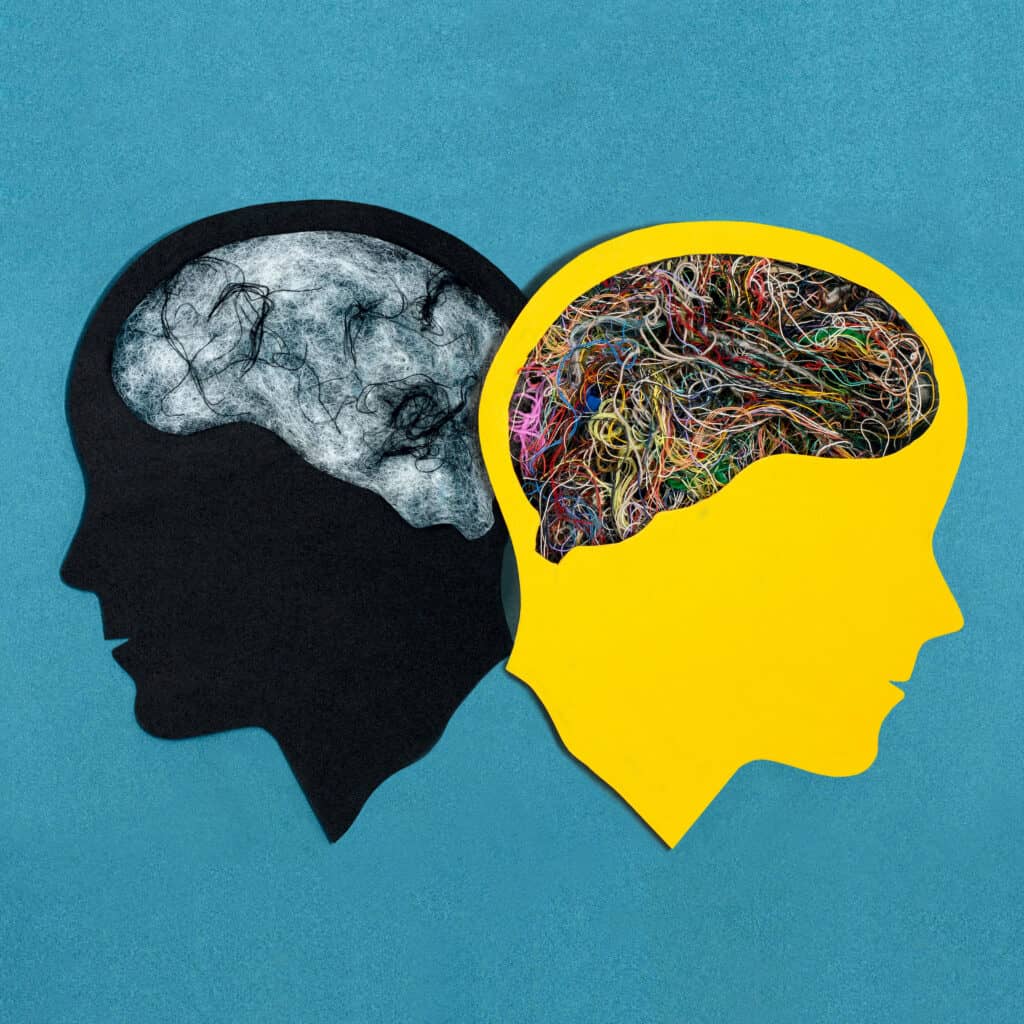- 98143 70700
- info@thehermitage.rehab
- 22, Circular road, Opp. VR Ambarsar, Amritsar
Bipolar disorder, formerly known as manic-depressive illness, is a brain disorder categorized by extreme mood disturbances affecting thoughts and behavior. This sort of illness causes unusual alterations in mood, energy, activity levels, and the ability to carry out daily routine tasks.
According to American Psychological Association (APA), “bipolar disorder is a serious mental illness in which common emotions become intensely and often unpredictably magnified. Individuals with this disorder can quickly swing from extremes of happiness, energy, and clarity to sadness, fatigue, and confusion. These shifts can be so devastating that individuals may consider suicide.”
A hypomanic episode is classified by less severe symptoms of a manic episode that need to last only four days in a row rather than a week.

2. Bipolar II Disorder: Bipolar II Disorder is not a milder form of Bipolar I Disorder, but a different diagnosis. To formulate the diagnosis of Bipolar II Disorder, a person must have had at least one major depressive episode and at least one hypomanic episode.
3. Cyclothymic Disorder: This disorder is a milder form of manic disorder and is defined by persistent hypomanic and depressive symptoms that are not intense enough or do not last long enough to qualify as hypomanic or depressive episodes.
4. Other Specified and Unspecified Bipolar and Related Disorders: Sometimes a person experiences the symptoms of bipolar disorder that do not match the above-listed categories, in such cases, it is referred to as other specified and unspecified bipolar and related disorders.
The journey for getting treatment for bipolar disorder can be a challenging one as this mental health disorder not only affects you psychologically and physiologically but also harms your family and relationships crippling you sociologically as well.
At The Hermitage Rehab, we pride ourselves on being the foremost destination for individuals seeking the best doctor for bipolar disorder and top-tier psychiatric care for this disease. Our dedicated team of experienced psychiatrists specializes in the diagnosis and comprehensive treatment of this disorder, providing a beacon of hope to those navigating the complex landscape of this condition. Whether you’re searching for treatment for bipolar disorder near you or require expert guidance on bipolar disorder symptoms, medication options, or understanding the causes of bipolar disorder, The Hermitage Rehab is your trusted partner on the path to stability and wellness. We offer a compassionate, patient-centric approach to help you regain control of your life.
The treating team at the Hermitage Rehab consisting of qualified professionals offers various psychotherapies, specialized psychodrama therapy, and pharmaceutical interventions as well as the all-new rTMS technique for the most outstanding results. Even in the most severe cases, bipolar disorder is treatable, so, the sooner the treatment begins higher the chance of reducing the severity and managing symptoms.
WhatsApp us